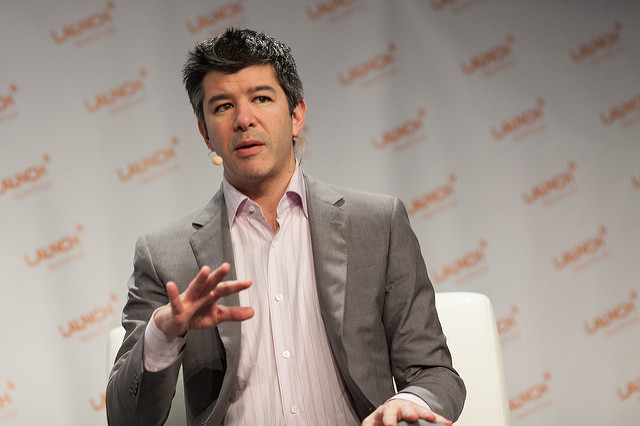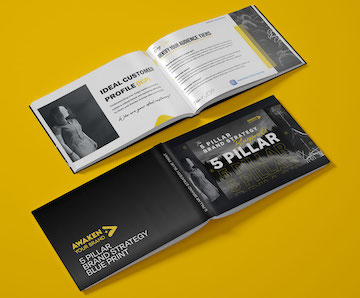Are You Worried About Starting A New Business?
Creating trust in your clients/customers is one thing, but having confidence in your own self is an entirely different thing and is more crucial than the former.
“To be or Not to be!” – Hamlet’s famous soliloquy by Shakespeare can, more or less, be related to a startup, too.
Self Doubt
[Hamlet (Original):
To be, or not to be: that is the question:
Whether ’tis nobler in the mind to suffer
The slings and arrows of outrageous fortune…
Hamlet (Translation):
The question for him was whether to continue to exist or not – whether it was more noble to suffer the slings and arrows of an unbearable situation, or to declare war on the sea of troubles that afflict one, and by opposing them, end them. To die. He pondered the prospect. To sleep – as simple as that. And with that sleep we end the heartaches and the thousand natural miseries that human beings have to endure. It’s an end that we would all ardently hope for. To die. To sleep. To sleep. Perhaps to dream. Yes, that was the problem, because in that sleep of death the dreams we might have when we have shed this mortal body must make us pause. Read Source]
I often get enquiries from entrepreneurs starting new ventures, of which the most common questions are ‘Am I right in having this plan/product/service?’; ‘Will my plan work at all?’; ‘How long will take for my business to break-even’; and ‘Will my customers believe in my service or product?’ or ‘Will I be able to persuade my customers/clients?’ and so on…
On receiving this type of questions, I find myself in a real predicament. How can I explain to someone who doubt themselves? Where will their lack of confidence take them? How can I explain this complex issue of business structure in simple terms?
Eventually, I found a way through which I can make myself clear. I answer them with a question: ‘Why do you think your plan won’t work?’
And they, very quickly, come up with a bunch of reasons: ‘may be there are so many products like mine in the market’, ‘mine is a new idea which has not been tried so far’, ‘my friend/partner told me somebody with the same plan failed miserably’ or ‘I don’t think I can raise enough money to start this product.’ and so on…
I say I’m sorry. We are in a world full of uncertainties, yet we make plans for future years, of which some business ideas work out well, some fail miserably and some go unnoticed. We will know the result only when we put our plans in practice… only when we launch our projects.
Otherwise, there is every chance that we end up like Hamlet who doubted himself more than anything else. (Here is a nice article about self doubt in hamlet.)
Launching a company isn’t always glamorous
I like the speech of Travis Kalanick, founder & CEO of Uber, an international cab supplier, worth $50 billion, with Kalanick worth $5.3 billion. In his speech, Kalanick confessed that ‘launching a company isn’t always glamorous’; ‘tough times do not mean it is the end of the road’ and ‘even the most successful entrepreneurs are also human beings’. So ‘fess up, apologize. learn from your mistakes and move on.’
(Read the full article “5 Entrepreneurial Lessons From Uber on Its 5-Year Anniversary” by Catherine Clifford)
In other words, don’t kill your small business ideas because you’re scared of the shadows looming over them, most of those shadows being imaginary. Just ‘throw some light’ on those shadows and they will disappear.
There are many ways to explore and exploit the possibilities and available resources including market research. What is needed most is your confidence. Unlike a businessman a couple of decades ago, you have all the resources available at your finger tips. There are people who will help you out if you are not familiar with certain business procedures, startup costs, or legal structure and there is tons of information freely available on approaching and solving business challenges and issues.
There are a number of experts who give away their experiences for free for those who want to start a business of their own. For instance, Nick Tanato for Forbes in his “8 Resources Every New Startup person Should Use’ mentioned a book, called ‘Four Steps to the Epiphany’, by Steve Blank, saying that it was a bible to new founders. Nick Tanato wrote that the following lines from that book were his most favorite:
“In a startup, it doesn’t matter if you’re 100 percent right 100 percent of the time. What matters is having forward momentum and a tight fact-based data/metrics feedback…”.
How right he is!
Even after trying everything else and if some doubt still persists and pulls you back all the time, don’t try to shake it off or ignore it. May be you are right in having that doubt; it might jeopardize your forward momentum. Here are a few examples of blockchain startups that push forward and achieve success.
Instead, reach for it and embrace it. See why it is pulling you back. And once you understand it, try to manipulate it by finding ways to turn it to your advantage. Or if it is really a rock hard obstacle, don’t waste your time and effort trying to break it, but approach it from a different angle. Take the help of your mentor or even try to bribe through it. but never give up!
Procrastination
Mark Twain & Oscar Wilde: “Never put off till tomorrow what may be done day after tomorrow just as well.”
Even after launching a business, some founders find it hard to keep up with the momentum.
The most common cause is ‘procrastination’. The Free (online) Dictionary by Farlex, with a record of serving 7,770,016,045 visitors, defines procrastination as
‘… there appears to be a connection with issues of anxiety, low sense of self-worth, and a self-defeating mentality.’ & ‘… procrastination is strongly connected with lack of self-confidence (e.g. low self-efficacy, or learned helplessness) or disliking the task (e.g. boredom and apathy). The strongest connection to procrastination, however, is impulsiveness.’
Therefore, a doubtful businessman’s enthusiasm and determination, however strong it seem in the beginning or however they are supported by experts, gradually wane and procrastination and indecisiveness slowly set in. So don’t be too anxious or doubtful, neither be impulsive. Leave some room in the plans and in the budget allocation for unexpected developments or changes as you go along.
Being Indecisive
Most of the people in general and business persons in particular are often indecisive.
“I am very indecisive. I’m always afraid of making the wrong decision.” – Katie Leung, the Scottish film, TV and stage actress, best known for her role in Harry Potter.
“There is no more miserable human being than one in whom nothing is habitual but indecision.” – William James, was an American philosopher and psychologist.
“I’m plagued with indecision in my life. I can’t figure out what to order in a restaurant.” – Chuck Close, American painter and photographer.
“When ordering lunch, the big executives are just as indecisive as the rest of us.” – William Feather, an American author and publisher.
Being indecisive may not harm people like Katie Lenung, for they have their managers or secretaries there to decide for them.
But a budding entrepreneur like you cannot risk being indecisive. It hardly matters if you are indecisive when you are at a restaurant ordering dinner. It certainly matters when you are at a meeting with your supplier or financier. You have to make a decision and make it quick. You won’t find time to debate or consult. Your one word, ‘yes’ or ‘no’, can make all the difference to your business.
Therefore, learn to make decisions. Do not depend too much on your partner or mentor. This quick decision making comes by practice and by having thorough knowledge in what you are doing.
As mentioned in several of my previous articles, it is the customers that decide a startup’s or corporate’s fate. If you do not consider the likes and the dislikes of your potential customers/clients and make changes accordingly, you are not doing it right and your business is not going nowhere.
In fact, in a recent trend, some experts advise the new comers to the business world to start their work from the end and work backwards to the start. That is, instead of following the traditional path – drawing the plans, allocating the budget, producing the goods or service, finding the distributors and outlets and then waiting for the customers/clients to do business with you.
You are advised to go to the customers/clients first, probably to your family members, relatives, friends and colleagues, discuss your product, not in detail, though; note their reactions and comments and suggestions; get the results analyzed and budgeted by professionals; accept the changes; and then, once you are fully aware of the whole process, dive into production or service. This way, the experts say, you have far less risk of wasting your time, effort and money on trial and error approach.





